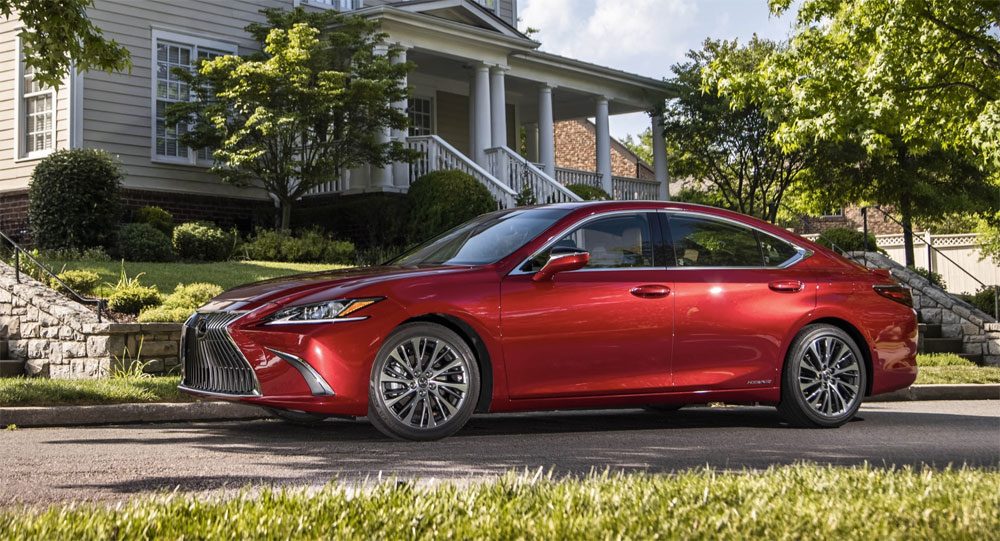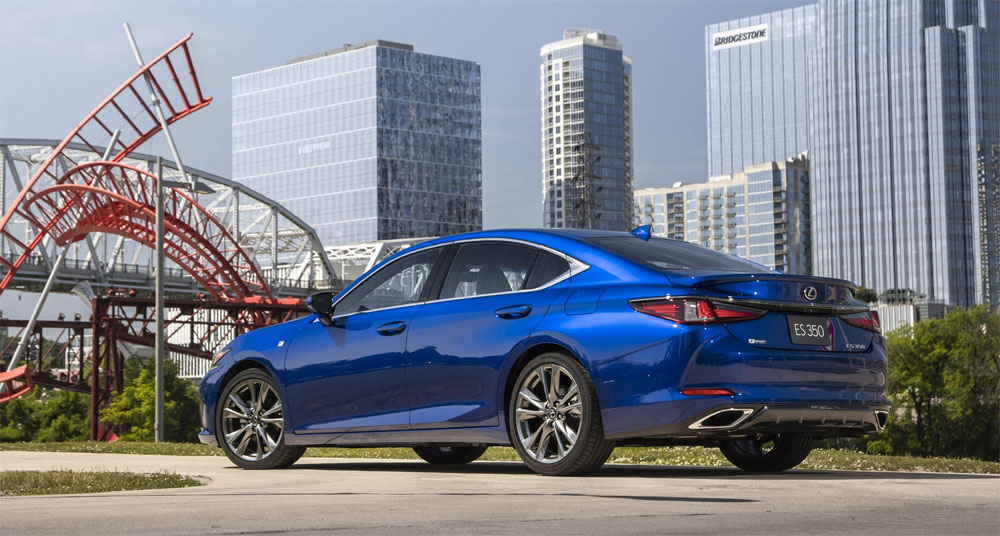Now two weeks after the first reviews of the 2019 Lexus ES hit the Internet, let’s look at some more driving impressions of the new sedan.
Pat Devereux of Top Gear could not have been more effusive in his review of the ES 300h:
This is a moment for you to consider what driving you really do, rather than what you would like to do, but don’t. While [Top Gear] will go to its grave defending your right to having a drift-worthy V8 that consumes tyres and petrol in equal measure, there are some of us who just want or need to get somewhere in the least stressful way possible. Often with luggage and passengers. For those people, cars like the Volvo S90 and now the new Lexus ES are not just a sensible choice, but the correct one.
The Gear Patrol review from Alex Kalogiannis is even-handed and sensible:
The legacy of the ES is secure. Within its element, it’s the best its ever been with contemporary looks and tech conveniences. The F Sport accoutrement only improves things, as long as buyers go in with the right expectations. The ride is smooth, the cabin is a comfortable place to be and it’s easy to see why Lexus loyalists have stuck with it for a few decades. This generation ES is far from a radical upgrade, but as [Chief Engineer] Sakakibara-san states, the pleasure is in the little things it consistently gets right.

Jake Lingeman from Autoweek has posted a very positive review of the ES, but what I wanted to highlight is his take on the Remote Touch controller:
There’s been a lot said about Lexus’ patented mouse pad/slider-joystick infotainment control, and I have a few opinions of my own. The first generation was not good. You had to look at the slider and the screen to find the right time to click. The company added little faux detents, so the cursor would sort of stick on the function you were looking for. It got better. Then it increased the screen size a few years ago to the 12.3 inches and got rid of the joystick/slider for a finger-controlled mouse pad. There was too much ground to cover. Now it’s refined again with separate screen divisions, with little tactile vibrations on the mouse pad where the screens meet so you sort of know where you are.
It wasn’t completely intuitive, but after a day in the car I was…serviceable with it. A week or so and it might be second nature. Whether it should take a week to learn how to use it is another issue. I think that’s an average amount of time; some in the office think that’s too long.


Comments